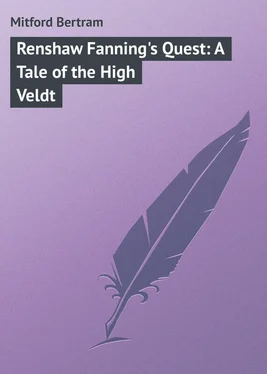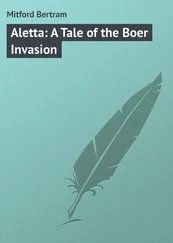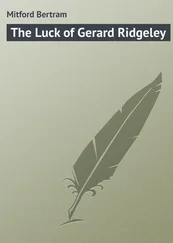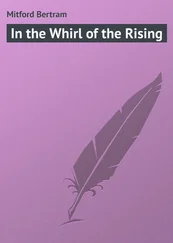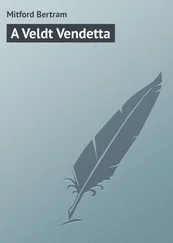Bertram Mitford - Renshaw Fanning's Quest - A Tale of the High Veldt
Здесь есть возможность читать онлайн «Bertram Mitford - Renshaw Fanning's Quest - A Tale of the High Veldt» — ознакомительный отрывок электронной книги совершенно бесплатно, а после прочтения отрывка купить полную версию. В некоторых случаях можно слушать аудио, скачать через торрент в формате fb2 и присутствует краткое содержание. Издательство: Иностранный паблик, Жанр: foreign_prose, на английском языке. Описание произведения, (предисловие) а так же отзывы посетителей доступны на портале библиотеки ЛибКат.
- Название:Renshaw Fanning's Quest: A Tale of the High Veldt
- Автор:
- Издательство:Иностранный паблик
- Жанр:
- Год:неизвестен
- ISBN:нет данных
- Рейтинг книги:5 / 5. Голосов: 1
-
Избранное:Добавить в избранное
- Отзывы:
-
Ваша оценка:
- 100
- 1
- 2
- 3
- 4
- 5
Renshaw Fanning's Quest: A Tale of the High Veldt: краткое содержание, описание и аннотация
Предлагаем к чтению аннотацию, описание, краткое содержание или предисловие (зависит от того, что написал сам автор книги «Renshaw Fanning's Quest: A Tale of the High Veldt»). Если вы не нашли необходимую информацию о книге — напишите в комментариях, мы постараемся отыскать её.
Renshaw Fanning's Quest: A Tale of the High Veldt — читать онлайн ознакомительный отрывок
Ниже представлен текст книги, разбитый по страницам. Система сохранения места последней прочитанной страницы, позволяет с удобством читать онлайн бесплатно книгу «Renshaw Fanning's Quest: A Tale of the High Veldt», без необходимости каждый раз заново искать на чём Вы остановились. Поставьте закладку, и сможете в любой момент перейти на страницу, на которой закончили чтение.
Интервал:
Закладка:
All this Renshaw contemplated with the recklessness of a player who has staked his last napoleon. Every day increased the unrest that was upon him, the feverish longing to get away. It was not the mere run-down feeling of one who desires a change, or the eagerness of a sensitive mind to see the last of a detested locality. There was more than this underlying it, and Maurice Sellon, watching him narrowly, though unobtrusively, noted the circumstance, shrewdly guessing, moreover, that anxiety on behalf of the mysterious Golconda was not the prevailing motive this time. But, whatever it was, Renshaw, habitually reserved, was closer than death itself.
Sellon, for his part, was as anxious to get away as his host. He was thoroughly sick of his present quarters, and of the daily occupation of seeing a few more wretched Angoras pay the debt of Nature – of staring at the glassy, shimmering horizon, and wondering when it was going to rain. Thoroughly sick, too, of swarming flies and of rough food none too appetisingly displayed – of a sofa-bed, and falling asleep to the accompaniment of the ticking rustle of the tarantulas hunting their prey in the thatch overhead, and occasionally running over his ear in the night. It was all very well for Fanning. He was used to that sort of thing – Sellon was not; therefore small wonder that he should begin to get sick of it. There wasn’t even anything to shoot on the place, for the springbok had trekked in quest of more favoured regions.
Sellon, however, was blessed with a mercurial temperament, as his host had remarked, and the same now stood him in good stead, for, though bored to death, he did not wax quarrelsome – the usual development of that unenviable condition. But there was one matter which, haunting his mind day and night, bade fair even to drive him into that.
He was racked by an hourly dread lest his friend should discover the loss of the missing paper. Maurice Sellon was constitutionally as far from being a coward as the average Englishman, well endowed with thews, habitually is. But the consciousness that he had been guilty of a mean and dishonest action tended to demoralise his easy self-reliance. A man like Renshaw, the possessor of a secret of fabulous value, the clue to which he had cherished for years, and patiently; and at the cost of untold hardship and possible peril, had repeatedly attempted to solve, would, he reasoned, prove a desperate man when he should come to realise that his hopes were for ever shattered – a dangerous one, should he ever arrive at the conviction that he had been deliberately robbed. The idea of persuading him that he had himself insisted on destroying it during his delirium seemed the only way out of the difficulty; but that expedient now struck Sellon as a particularly thin one. Such a state of mental nervousness had he reached, that he felt sure the other would at once detect it as a lie. True, he had probably saved Fanning’s life, as the latter had himself declared. But at the moment of his terrible discovery that consideration was not likely to count for much.
They were alone here together. Not a living soul had they seen during all these weeks, except the family of Korannas, who officiated as servants – both field and domestic – to the establishment. They were alone together – cut off from the outside world as thoroughly as though shut up on a desert island. What deadly, terrible penalty might not Fanning exact from the man who had so deeply injured him? He was no longer weak and tottering with illness; he had, in fact, nearly recovered his normal vigour. The more Sellon looked at the situation the less he liked it.
What a fool he had been to meddle with the thing! He would have given worlds to be able to replace it. But it was gone irrevocably.
At one time his suspicions had rested on the Koranna servants. But the narrow watch he had kept upon them, as also the immediate and careful search he had made around the house at the time of the occurrence, had forced him to abandon this idea. Dismissing the Satanic theory at first formed, he had hit upon another – to a dweller in Southern Africa, almost as wild and chimerical; but then it must be remembered that Sellon was not a dweller in that country – only a “raw Englishman,” in fact, as the Boers define a recent importation. That black claw which had reft the paper from his hand in the dead midnight must have belonged to some huge baboon, who, attracted by the light, had approached the open window, and having accomplished his mischievous and monkey-like manoeuvre, had decamped forthwith to his native wilds. Anyhow, the precious clue had disappeared, and in all human probability would never again be lighted on by mortal eye.
Mingled with his apprehensions on the above counts, however, were the misgivings of cupidity, and there were times when he suspected Renshaw of regretting his offer. The latter, since first mentioning the subject of the treasure, had hardly reverted to it, and this reticence struck him (Sellon) in an unfavourable light, and the reason assigned for it as a mere excuse.
“Take my word for it,” Renshaw had said, one day, “we had better leave the subject entirely for a little longer – till we get down country, say. You see, the long and short is, it’s an exciting one to me, and my head is by no means clear yet. It’ll be better to put it off, and there’s plenty of time.”
And this answer, judging the speaker by himself, and, indeed, it is fair to say, by his knowledge of the world, struck Sellon as eminently unsatisfactory. At the risk of a rebuff, a rupture even, he had more than once adroitly tried to “draw” his host, but with so little success as to leave him ignorant as to whether the latter was sufficiently familiar with its contents as to render him independent of the document itself.
Outwardly, the intercourse between the two men was pleasant and friendly enough, and though they had little to do but smoke Boer tobacco and wonder whether it would ever rain again, they had not yet exhausted their subjects of conversation, Sellon was a lively talker, and full of shrewd worldly wisdom, and the other’s natural reserve admirably fitted him for the part of a good listener. Or, on the other hand, more than one strange wild incident, evolved out of the reticent, lonely man’s own experiences, was of vivid interest to the globe-trotting viveur .
Then it was that the latter came to impart snatches of his own history. He had migrated to South Africa as a pure speculation, and ready for any adventure that might come to hand – mining, treasure-seeking, a trip up country, anything that promised possible profit. He had half arranged an up-country trip, and it was while journeying to a distant township to interview the other partner in the scheme that he had lost himself, and accident had landed him so opportunely at Renshaw Fanning’s door.
One night they had been thus chatting, and retired to bed, having decided to make a start, at all risks, the day after the morrow. The heat was something fearful. A dead, sultry, boding stillness reigned over everything, productive of that strange nervous depression which is wont to afflict mankind prior to an approaching convulsion of Nature. Every door and window of the house stood open, as if to keep up the fiction that there was any air to come in.
“I believe there’s going to be an earthquake, at least,” said Sellon, as he turned in.
“Or a big thunderstorm, only – no such luck!” answered Renshaw.
It was not the night to bear the weight of a blanket, or even of a sheet, had the latter luxury been among the resources of the establishment. Sellon, after tossing uneasily for an hour, dropped off into a heavy sleep, and dreamed.
He was alone in a deep, craggy gorge. Beetling rocks reared high above his head, just discernible in the gloom, for it was night. It was the “Valley of the Eye.”
Читать дальшеИнтервал:
Закладка:
Похожие книги на «Renshaw Fanning's Quest: A Tale of the High Veldt»
Представляем Вашему вниманию похожие книги на «Renshaw Fanning's Quest: A Tale of the High Veldt» списком для выбора. Мы отобрали схожую по названию и смыслу литературу в надежде предоставить читателям больше вариантов отыскать новые, интересные, ещё непрочитанные произведения.
Обсуждение, отзывы о книге «Renshaw Fanning's Quest: A Tale of the High Veldt» и просто собственные мнения читателей. Оставьте ваши комментарии, напишите, что Вы думаете о произведении, его смысле или главных героях. Укажите что конкретно понравилось, а что нет, и почему Вы так считаете.
